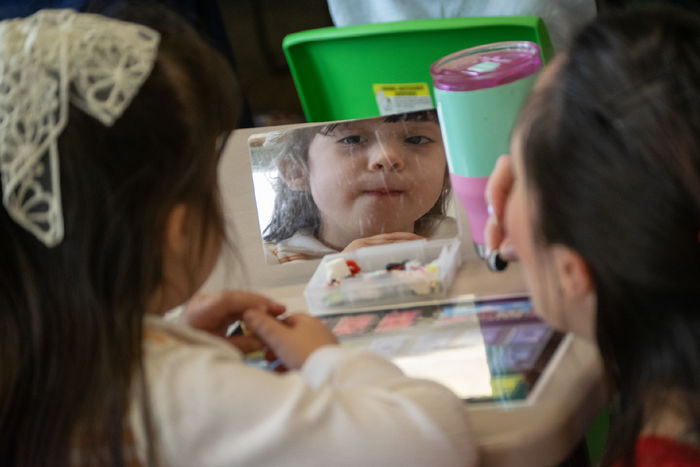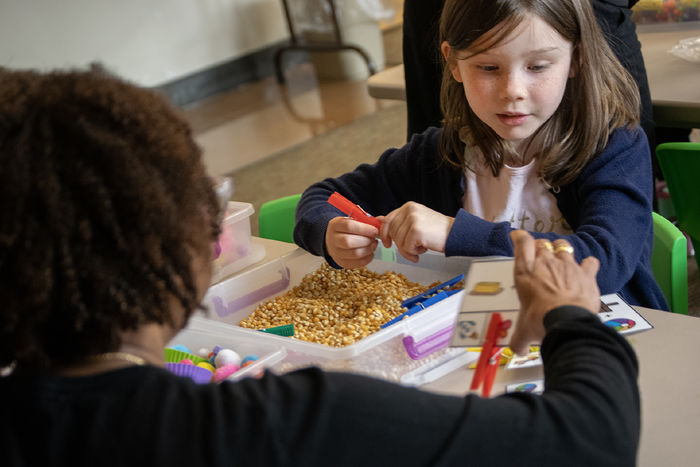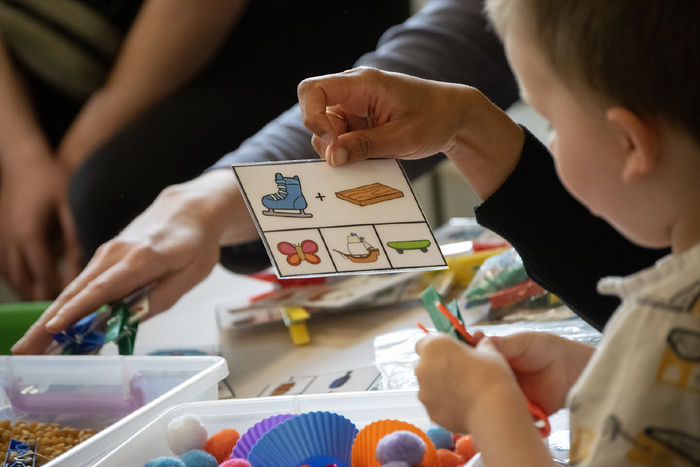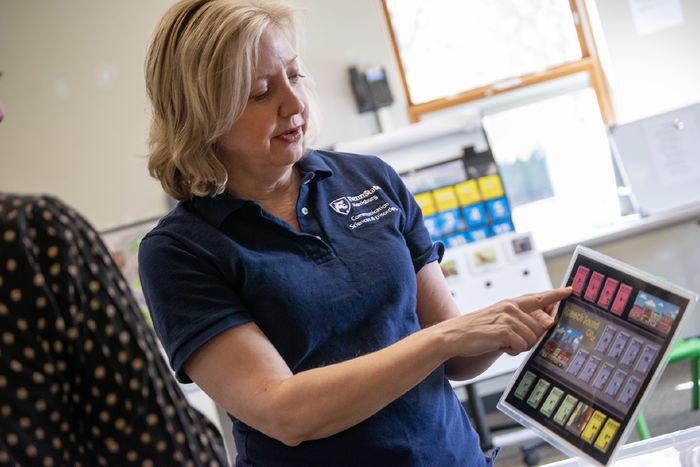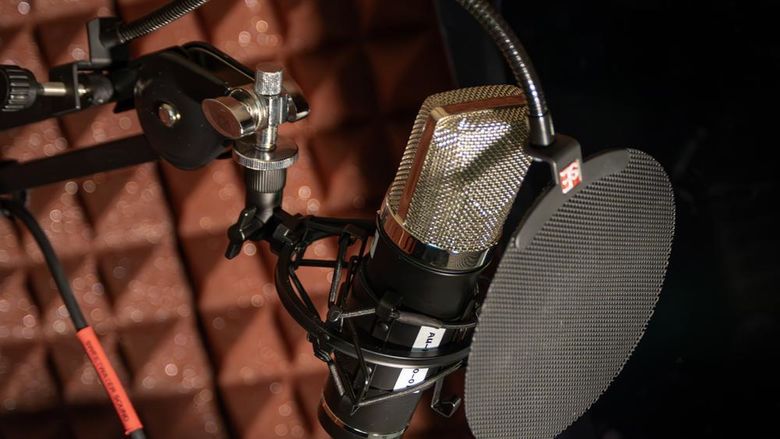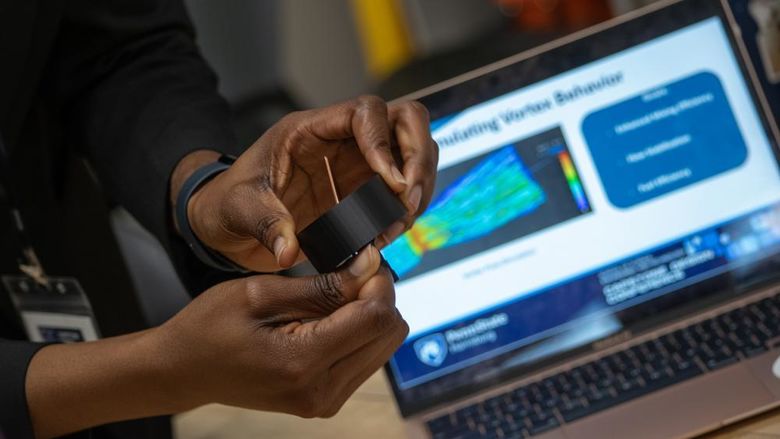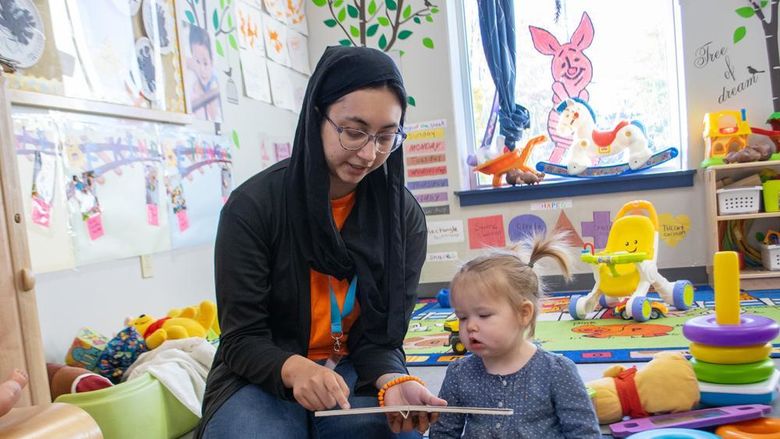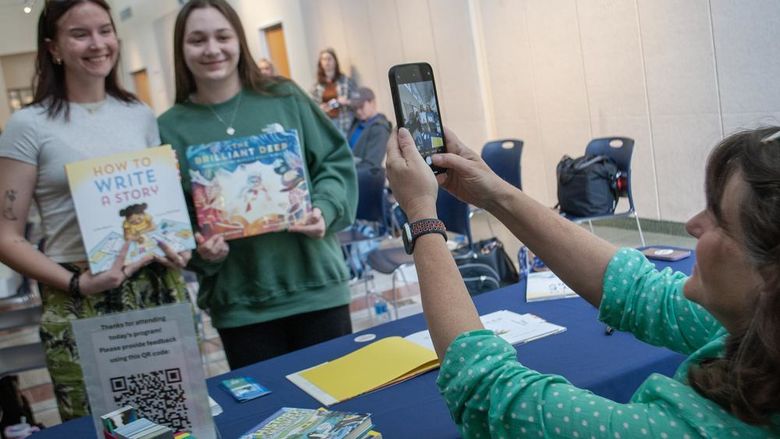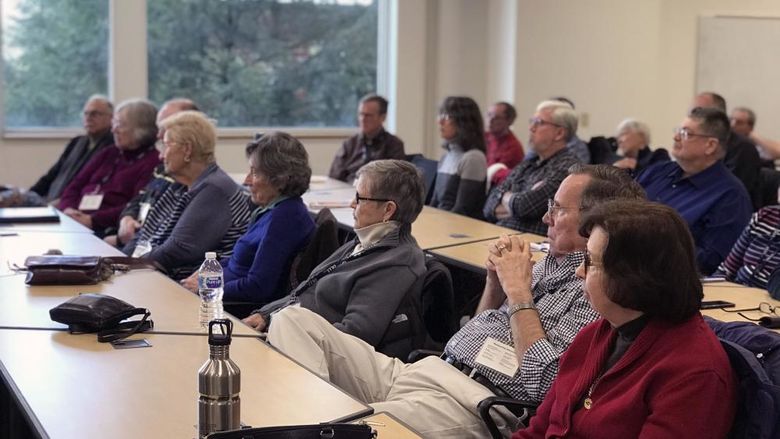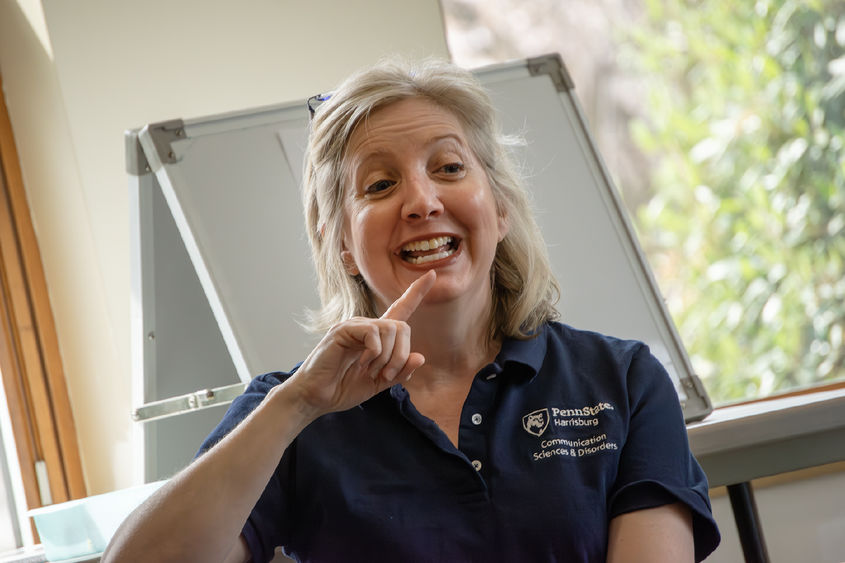
Heidi Haas, assistant teaching professor of communication sciences and disorders at Penn State Harrisburg, demonstrates how to make a sound to children during the Speech Links to Literacy program she runs with Dauphin County Libraries. During the spring semester, two undergraduate students helped her with the program, gaining experience in the field they plan to enter.
MIDDLETOWN, Pa. — Children gathered around tables at the Madeline Olewine Library in Harrisburg on a spring Friday, working to match up small toys with their beginning sounds listed on the cards in front of them.
Sound-letter awareness is one of the skills that Heidi Haas, assistant teaching professor of communication sciences and disorders at Penn State Harrisburg, has worked on with children through a program called Speech Links to Literacy, an outreach effort she runs in partnership with Dauphin County Libraries. During the spring semester, the program gave two Penn State Harrisburg students studying communication sciences and disorders (CSD) a chance to get some hands-on experience in the field. Julianna DiAngelo and Maria Gittens both graduated in May.
“Touch the letter “p” first,” DiAngelo instructed the children as they looked for the right spot on the cards in front of them.
“What sound does “p”make?” asked Haas, who is also director of clinical education for the CSD program. “Check your mirror and make sure your lips are touching.”
The children looked into the mirrors on their tables as they made exaggerated “p” sounds.
Haas, a speech-language pathologist who specializes in pediatric speech sound disorders, began the program in 2022, prior to joining Penn State Harrisburg. During the spring semester, Haas enlisted the help of DiAngelo and Gittens to give them an up-close look at how they might one day deliver services in their future careers. The opportunity was made possible, in part, by a seed grant from Penn State Harrisburg’s Office of Research and Outreach.
“I teach a speech sound disorders class to the undergraduate students in the spring,” Haas said. “This program is a natural opportunity to see [the work] in real life, and see how it plays out in the community.”
During the spring semester, Haas teaches "Introduction to Articulation and Phonological Disorders," a class that covers typical speech development. Students learn how speech develops in the first six years of life, and how to help remediate when a child has unintelligible speech or mispronounces sounds, for example.
Speech Links to Literacy is a program Haas developed that focuses on teaching caregivers how to promote speech sound development and emergent literacy skills in pre-school age children. Research shows that children who have speech sound disorders can end up behind when entering kindergarten and learning to read, she said.
The program was open to pre-school age children and their siblings, and caregivers were involved to ensure they are learning the skills to help their children.
Haas works with a librarian at the Madeline Olewine Library for the program, which is run similarly to a story time. On a recent day, they practiced sounds while looking in a mirror and crawled through a play tunnel to choose stuffed animals. The children would tell the group what the beginning letter of the animal’s name was and then imitate the sound. Haas and the students demonstrated how to model sounds so the caregivers can do so at home.
“I think it’s helped put a lot of things in perspective for me,” DiAngelo said, noting that she had not worked with children before. “Learning about something is one thing but actually seeing a child with a disorder that we were just talking about, or the phonological patterns we just talked about, just helps cement it.”
Gittens works in an after-school program, she said, so she’s seen children who have difficulties first-hand. Now she knows more about how to approach that when she is working in the speech-language field someday.
“It’s nice to see how they work through sounds,” Gittens said.
Children don’t have to have a speech difficulty to participate in the program, though Haas said the program has helped identify some families who could use additional services.
“There is a real shortage of speech pathologists right now,” Haas said, explaining that the program helps provide age-appropriate speech and language skills that families can use as they wait for additional services. “This program has been a good safety net. We are able to make referrals and point families in the right direction.”
The library has benefited, too, seeing families stick around after the program to choose and borrow books as well as sign up for library cards.
Haas said Penn State Harrisburg aims to address the national shortage of speech-language pathologists and plans to offer a master’s degree in speech-language pathology beginning in the fall of 2026. The Speech Links to Literacy program will continue as a university-community partnership, she said, providing valuable clinical experience to both undergraduate and graduate students and ensuring the local community has access to speech-language pathology services.
